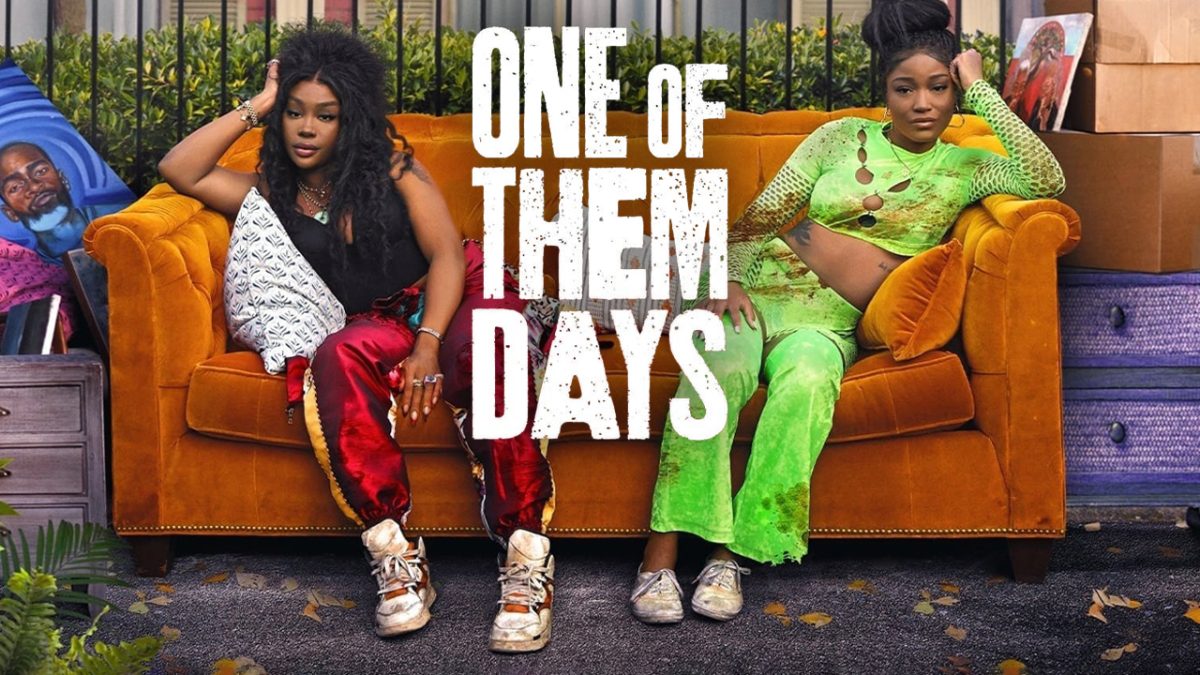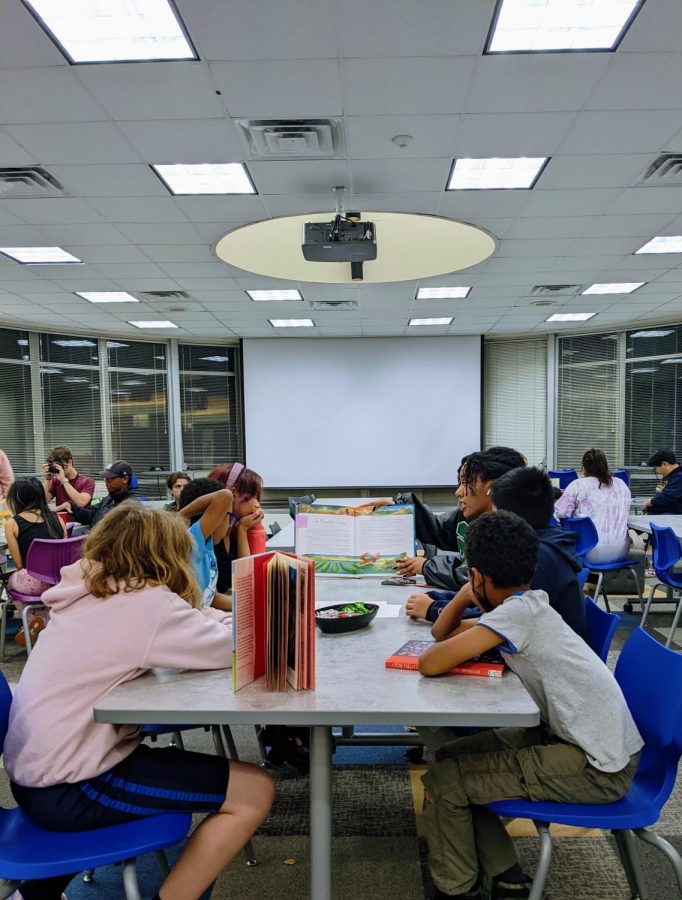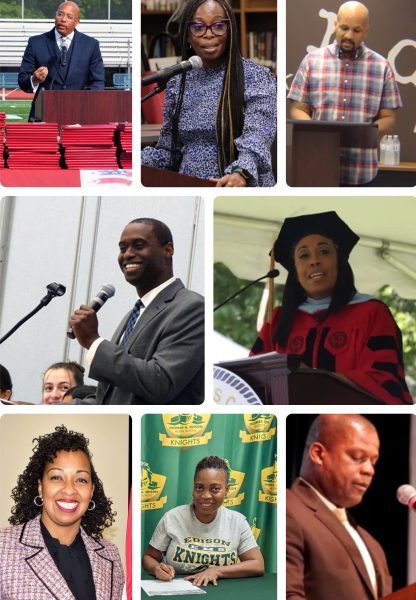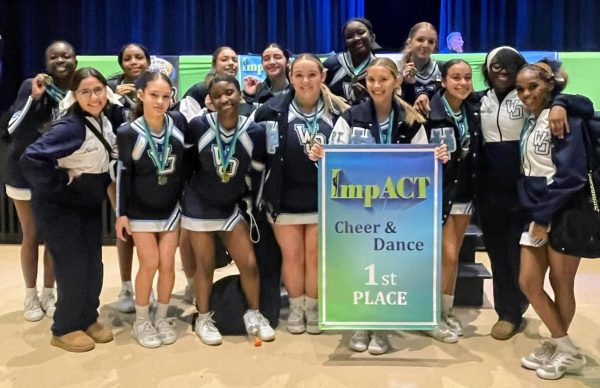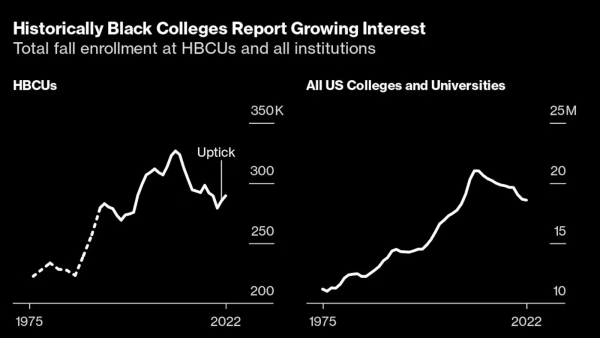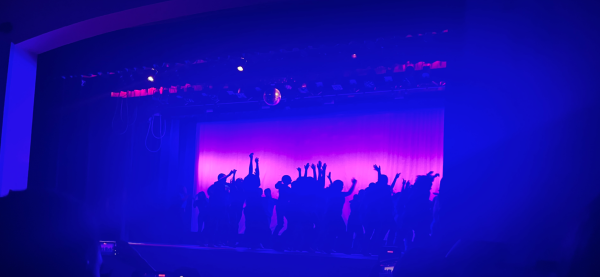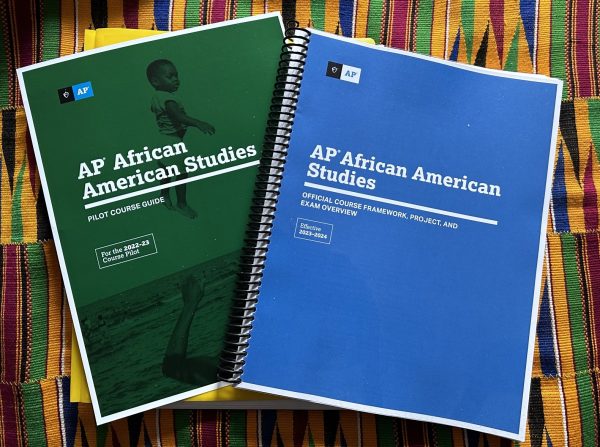Asian Culture Book Night
Reading to Make Change
Students immersed in read aloud at Asian Culture Book Night
On December 8, 2022 United Asian Voices of West Orange (UAV), along with the Escriptus chapter of the National English Honor Society at West Orange High School, hosted an Asian Culture Book Night. The read aloud was held in the Library Media Center, on Thursday night and was open to all elementary school students in the West Orange community. Students were invited to wear pajamas and participate in a night of engaging stories and folktales that highlighted the diverse and amazing cultures of different Asian countries around the globe.
UAV has previously hosted a plethora of community events including the Diwali festival this October and a Lunar New Year Celebration last February.
The group formed in 2021 as a result of two local groups coming together after outrage at recent Anti-Asian hate crimes, specifically the Atlanta shootings. Appalled at the lack of action taken by the West Orange community, the group used the event as a “teachable moment,” says Fannie Chan Jarvis, a member of UAV. Jarvis explains how UAV wanted to “Draw parallels between [recent anti-asian hate crimes] and the historic racism, the historic scapegoating of Asians in America that’s happened for over 300 years,” she elaborates by saying, “UAV was founded with a mission… to lift up, engage and empower…the Asian American voices in town. And we do so through advocacy work, through the education team, but also on legislative and civic matters.”
This past year the group helped pass a New Jersey Education Bill “…which mandates the inclusion of Asian American history in all New Jersey history classes,” Jarvis explains, a huge step in the right direction. UAV has also hosted self defense classes for women at local dojos, along with working alongside Holy Trinity Food Pantry. “We’ve got a lot of things on the table for 2023,” says Sage Gajarawala, another member of the UAV.
This December, UAV has partnered with Senior Members of Escriptus, who typically host the annual “Poetry Out Loud” Competition and other school events.The goal of the read aloud was to educate children of all backgrounds about Asian heritage and culture.
Camille Bugayong, the Co-Editor in Chief of The Pioneer and President of the Escriptus Chapter expands on the importance of the event, explaining how books are an integral part of how children learn since they are so heavily interconnected to young people’s lives. From school to good night stories books reach many aspects of childhood, even so, many stories don’t reflect the large majority of diverse cultures and lives.
Bugayong mentions that most books about culture were typically offered at the more advanced level, and as a younger child, and an avid reader, she didn’t see much variety in the stories she was reading. Jarvis notes that the first time she had read a book that featured an Asian-American main character was when she read The Joy Luck Club outside of class when she was in highschool. Camille says the inspiration for the event came from UAV’s Diwali Festival that she participated in back in September. “I saw these children’s books at the Diwali Festival and I thought, what are some ways these books can reach kids?” She admits that Escriptus has never hosted an event like this before but that they wanted to “…fuse Escriptus[‘s] literary goals,” with UAV objectives.
In a lively, educational night, Escriptus members read to children, in small groups, who, after the story, would participate in an open discussion about what they read. The selection of books ranged from stories like Amy Wu And The Perfect Bao and Watercress to A Year Full Of Stories, a celebration of folktales and legends from around the world. The elementary students were invited to share their own experiences. Some students recognized some of the books that were read. Which is hopefully a sign that different cultures are being embraced more commonly in school literature.
Jarvis explains how crucial books like these are, “Education is an effective tool against racism,” she says, “…if we’re not talking with one another, hate and violence can easily fester.” She notes how the first step to making change is recognizing every part of our history. We need to “…understand that America was shaped by people from all over the world, of course, including the American Indians. Let’s not erase their history either. America is not just a country of immigrants, we are a country of killers. And we have to own that history and we have to celebrate the good but we have to acknowledge that we have a racist path… [and a] genocidal path.”
Gajarawala adds, “…we need to share our diversity with the community. The more you share with the community, the more they understand about our cultures.” She says events like these not only showcase Asian students but also everyone else who has learned from and appreciated forms of Asian culture. Whether through art or music, she explains, “The more you understand about cultures, the more people respect those cultures and it reduces racism.” says Jarvis.
Of course, the first step to learning is having the ability to open your mind. This event created a space for children to learn with receptiveness toward peers and people who are different from themselves.
Jarvis goes on to say how books provide readers with “cultural gems” that could be drastically different from what you’re used to or they could feel quite similar to your experiences. In both occasions, learning opens doors to understanding how connected we are and how equally valid every culture is. “Books are a gateway to the world…Once you open a book, you open your mind. You open your mind, you open your heart, and the world is your oyster.” says Jarvis.
In some cases, we may struggle to lead with open mindedness, conversations about cancel-culture, and cultural appropriation, making some hesitant to expand their knowledge in fear of being politically incorrect. Jarvis says the best way to approach learning about culture is far more simple than it may seem. “The first step is to be open to being vulnerable. Be open to having that conversation with someone. Be open to being wrong about your assumptions about that person and that background.” She also notes that if you do “put your foot in your mouth,” accept that you were wrong and use that as a moment to learn rather than avoid. “Be open to that,” she says, “That’s how we build friendships. That’s how we build connections, build community.”
Jarvis points to the next generation of students as leaders for a more “equitable society” beginning with education as books are just the beginning.














































